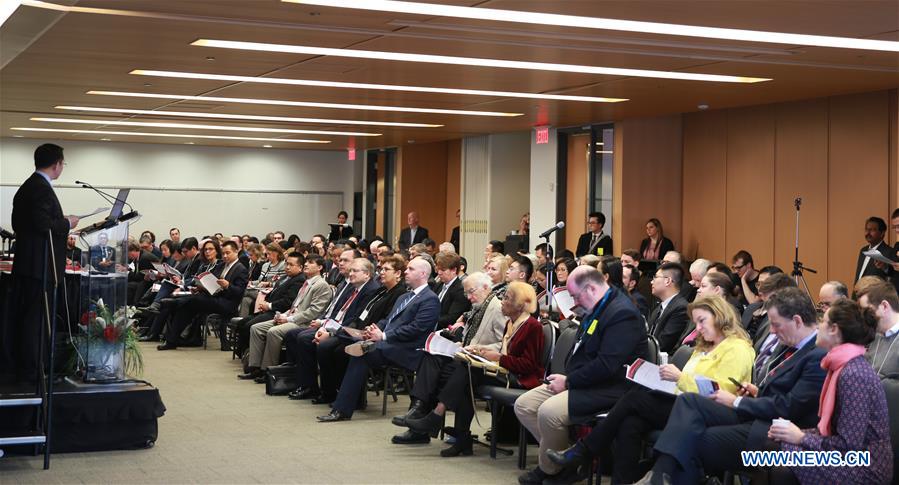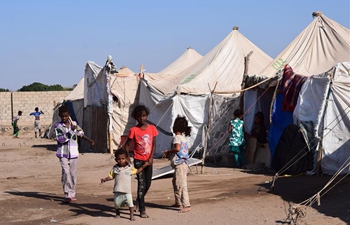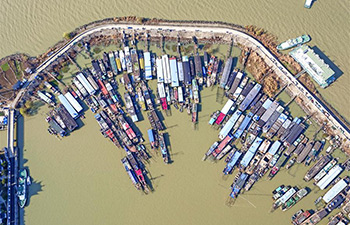
Delegates attend the Belt and Road Initiative (BRI) Conference, co-hosted by the Chinese Embassy and Canadian Carleton University, in Ottawa, Canada, Dec. 14, 2018. The conference brought together nearly 200 attendees including diplomats, experts, researchers and business people to discuss and share their insights on the BRI. (Xinhua/Li Baodong)
OTTAWA, Dec. 14 (Xinhua) -- The Belt and Road Initiative (BRI) Conference, co-hosted by the Chinese Embassy and Canadian Carleton University Friday here, brought together nearly 200 people, including diplomats, experts, researchers and business people to discuss and share their insights on the BRI.
The conference is meant to focus on economic, diplomatic and human impacts as well as opportunities for Canada to achieve trade diversification and tap the vast Asia Pacific market, according to the conference organizers.
At the conference, Chinese Ambassador Lu Shaye delivered a keynote speech to elaborate the core connotations of the BRI, introduced in detail its achievements over the past five years, and refuted various sorts of preposterous arguments against the BRI.
He said that the BRI provides a broad platform to promote policy coordination, facilities connectivity, trade, financial integration, and strengthen people-to-people bonds.
"The BRI is not only highly welcomed by Asian and Europe countries along the Belt and Road route, but also by many African and Latin American countries which are also eager to join it," said Lu.
Russian Ambassador Alexander N. Darchiev, President of Canada China Business Council Graham Shantz, Pakistani Acting High Commissioner Muhammad Saleem and Belarus' Charge d' Affairs Dmitry Basik also delivered speeches to introduce their countries' future development plan which could connect with the BRI.











